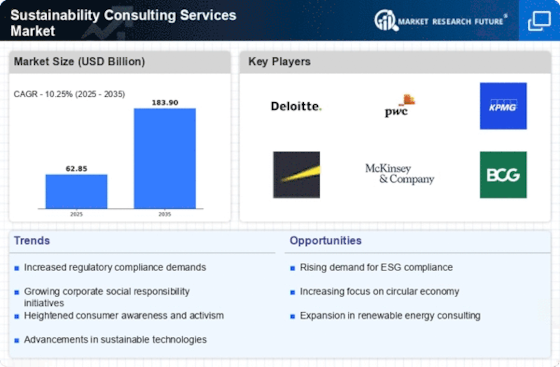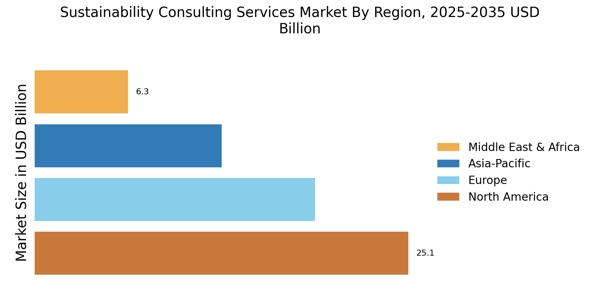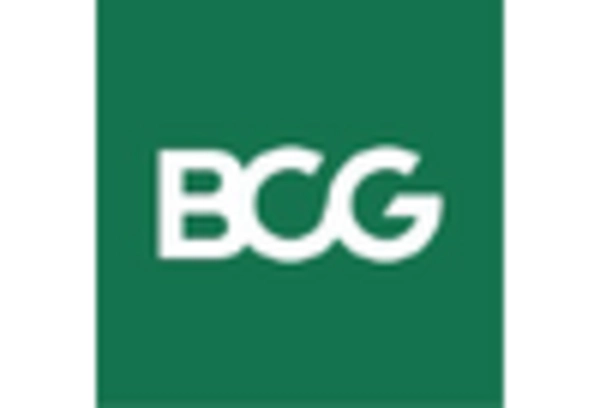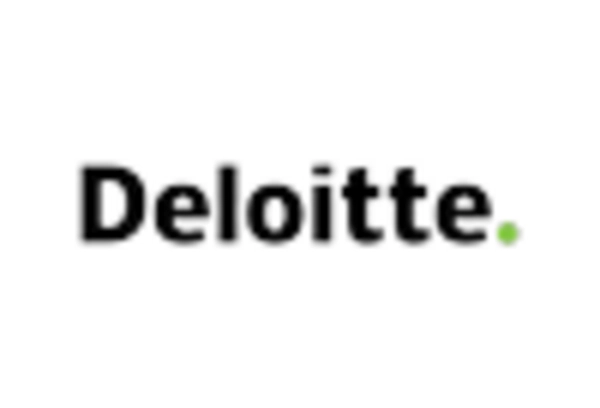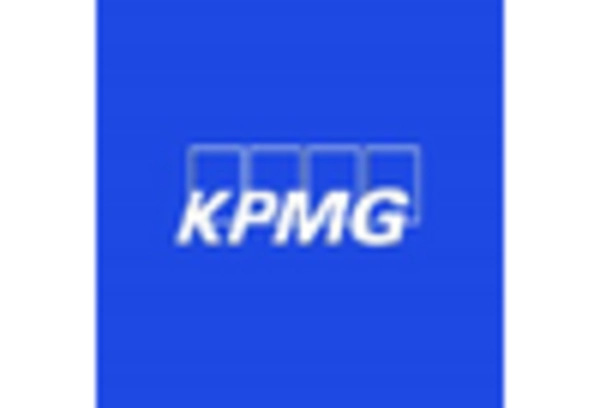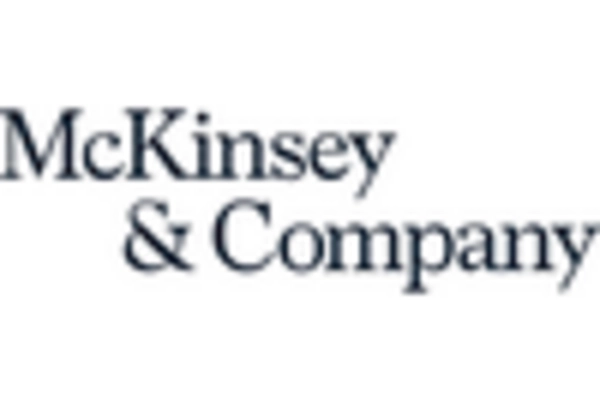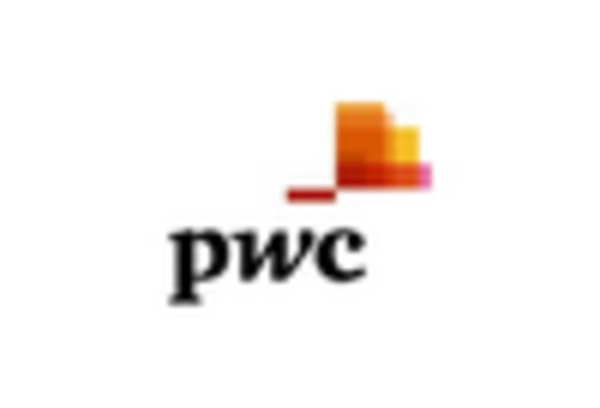Investment in Renewable Energy
Investment in renewable energy sources is a significant catalyst for the Sustainability Consulting Services Market. As nations strive to meet ambitious climate goals, there is a marked increase in funding directed towards renewable energy projects. Reports indicate that investments in renewable energy reached approximately 300 billion dollars in the last year alone, reflecting a robust commitment to sustainable energy solutions. This influx of capital necessitates expert consulting services to navigate the complexities of renewable energy implementation, compliance, and optimization. Sustainability consulting firms are thus positioned to assist organizations in aligning their energy strategies with sustainability objectives, ensuring that investments yield both environmental and economic benefits. The growing focus on renewable energy not only enhances the market for consulting services but also contributes to a broader transition towards sustainable practices across various sectors.
Growing Corporate Responsibility
The increasing emphasis on corporate social responsibility (CSR) is a pivotal driver for the Sustainability Consulting Services Market. Companies are now more than ever held accountable for their environmental impact, leading to a surge in demand for consulting services that can guide them in sustainable practices. According to recent data, over 70% of consumers prefer brands that demonstrate a commitment to sustainability. This trend compels businesses to seek expert advice on integrating sustainable practices into their operations. As a result, sustainability consulting firms are experiencing heightened interest from organizations aiming to enhance their CSR initiatives. This growing corporate responsibility not only fosters brand loyalty but also positions companies favorably in competitive markets, thereby driving the demand for sustainability consulting services.
Regulatory Pressures and Compliance
Regulatory pressures and compliance requirements are increasingly shaping the Sustainability Consulting Services Market. Governments worldwide are implementing stricter environmental regulations aimed at reducing carbon footprints and promoting sustainable practices. This trend has led to a heightened need for organizations to ensure compliance with evolving regulations. Data suggests that non-compliance can result in substantial financial penalties, prompting businesses to seek the expertise of sustainability consultants. These professionals assist organizations in navigating complex regulatory landscapes, ensuring that they meet legal requirements while also adopting best practices in sustainability. The growing emphasis on compliance not only drives demand for consulting services but also fosters a culture of accountability and transparency within organizations, ultimately contributing to broader sustainability goals.
Consumer Demand for Sustainable Products
The rising consumer demand for sustainable products is a crucial driver influencing the Sustainability Consulting Services Market. As awareness of environmental issues grows, consumers are increasingly seeking products that align with their values, prompting companies to adapt their offerings. Recent surveys indicate that nearly 60% of consumers are willing to pay more for sustainable products, which compels businesses to reassess their supply chains and production methods. This shift necessitates the expertise of sustainability consultants who can provide insights into sustainable sourcing, production efficiency, and waste reduction. By leveraging consulting services, companies can not only meet consumer expectations but also enhance their market positioning. The interplay between consumer demand and sustainability consulting services is likely to shape the future landscape of various industries, driving innovation and sustainable practices.
Technological Advancements in Sustainability
Technological advancements play a pivotal role in shaping the Sustainability Consulting Services Market. Innovations in areas such as data analytics, artificial intelligence, and blockchain are transforming how organizations approach sustainability. These technologies enable businesses to track their environmental impact more accurately and implement more effective sustainability strategies. For instance, the integration of AI in sustainability consulting allows for enhanced predictive analytics, helping organizations identify potential risks and opportunities in their sustainability efforts. As companies increasingly adopt these technologies, the demand for consulting services that can guide them in leveraging these advancements is likely to grow. The intersection of technology and sustainability consulting not only enhances operational efficiency but also drives the development of innovative solutions that address pressing environmental challenges.


